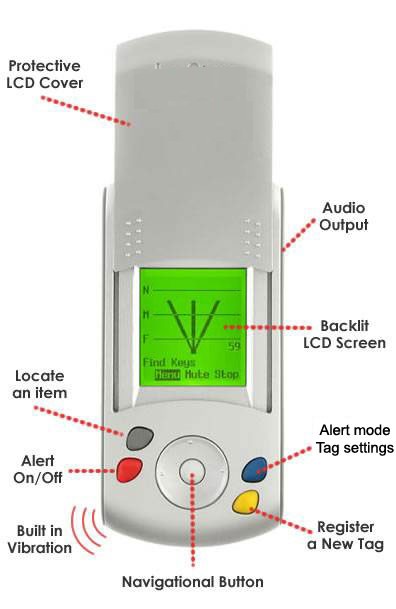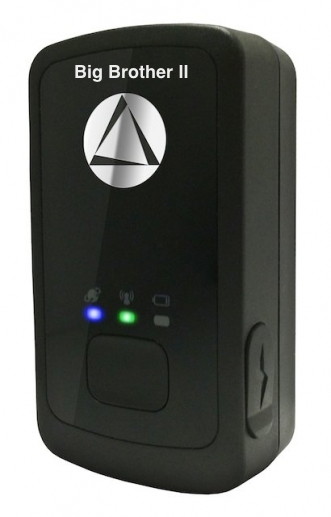Families Use Apps To Track Relatives With Dementia (#GotBitcoin?)
Technology can keep tabs on people with dementia, but apps crash, batteries die and systems fail. Families Use Apps To Track Relatives With Dementia (#GotBitcoin?)
Kim Rice tracks her husband’s every move, including his arrival home each night from adult day care.
She’s among the millions of Americans caring for a loved one with dementia at home. And like many, she turned to tracking and monitoring devices to help her manage the daily juggle of working, ensuring her husband’s safety and maintaining her own sanity.
Most days, Mr. Rice’s bus driver walks him to the door of his home and sees him inside. But there’s sometimes a 15-minute lag before Ms. Rice receives the notification her husband made it home, courtesy of a GPS tracker she slips in his pocket.
“There are times he’s gotten back before me and it’s a race to get home,” said Ms. Rice, an occupational therapist whose husband, Greg, 63, has frontotemporal dementia. Their St. Paul, Minn., house is outfitted with motion detectors and door-lock sensors that alert her when her husband attempts to leave. “I have six different apps related to Greg on my iPhone.”
There’s a lot riding on technology that could keep people in their homes longer. As the number of older Americans grows, the number of family members available to care for them is expected to decline, according to the National Academies of Sciences, Engineering, and Medicine. More than 16 million adult family members provide unpaid care for many of the 5.8 million Americans living with Alzheimer’s disease or other forms of dementia, the Alzheimer’s Association estimates.
Monitoring technology promises to prolong independent living for adults with memory problems and to provide respite for their caregivers but, as Ms. Rice and others have learned, technology isn’t a catchall.
“Putting on a watch sounds easy. Making sure the app works—not always. Making sure your parent or spouse is using it—even harder,” said Andy Miller, senior vice president of innovation and product development at the AARP. “This stuff takes money and time to set up and maintain. It either becomes a burden or something goes wrong and the stuff ends up in the junk drawer.”
Ms. Rice has had some close calls. One evening when Mr. Rice got home before a caregiver arrived, Ms. Rice tried to speak to him through her video doorbell ringer, but the video stream on her Ring app was slow to load. She finally got through and explained how to enter the code to unlock the door. Once Mr. Rice was inside, she kept him stable by speaking to him through the Amazon Echo Show device in their kitchen, where he could see her on screen.
“I feel safer with the things she’s put in place,” Mr. Rice said. “It’s very good to be in my own home.”
When the devices work smoothly, it can be liberating. Tracking her husband has enabled Ms. Rice, 53, to continue going on the bike rides that provide the only “me time” she gets, because she can have the door-sensor notifications sent to neighbors in case Mr. Rice wanders.
“Without technology, I couldn’t have kept him home this long, but there’s been a lot of trial and error,” said Ms. Rice.
Joseph Gaugler, a public health professor at the University of Minnesota, studied the effectiveness of remote activity monitoring technology over a six-month period for caregivers of people living with Alzheimer’s disease or a related dementia. His study, published in July in the Gerontologist journal, found that such technology works best for people in the early stages of dementia but even then, families often struggle with it. “It’s not a universal solution,” he said.
When Kathleen Daly was in the early stages of Alzheimer’s, the former epidemiologist went on walks around her neighborhood. Sometimes, when she got lost, she’d call her husband, Joseph.
What The Rice Family Has Found Useful
AngelSense GPS Tracker ($229; Service Starts At $33 A Month): Location device marketed to parents of children with autism. Its maker says about 10% of its users are people with dementia and Alzheimer’s.
Vitals Aware Services: Created to help people with “invisible” disabilities, this service consists of a free app and wireless keychain beacon. (The first is free; additional beacons are $20.) Officers from participating police departments get a notification if they come within 80 feet of someone wearing a beacon, including tips for de-escalating confrontational situations.
Best Buy Assured Living ($50 To $150 Per Product; $30 a month for service): Devices, from door alarms to bed pressure sensors, are installed to help seniors live independently. The program is available in just over 20 U.S. metro areas.
“I feel safer with the things she’s put in place,” Mr. Rice said. “It’s very good to be in my own home.”
When the devices work smoothly, it can be liberating. Tracking her husband has enabled Ms. Rice, 53, to continue going on the bike rides that provide the only “me time” she gets, because she can have the door-sensor notifications sent to neighbors in case Mr. Rice wanders.
“Without technology, I couldn’t have kept him home this long, but there’s been a lot of trial and error,” said Ms. Rice.
Joseph Gaugler, a public health professor at the University of Minnesota, studied the effectiveness of remote activity monitoring technology over a six-month period for caregivers of people living with Alzheimer’s disease or a related dementia. His study, published in July in the Gerontologist journal, found that such technology works best for people in the early stages of dementia but even then, families often struggle with it. “It’s not a universal solution,” he said.
When Kathleen Daly was in the early stages of Alzheimer’s, the former epidemiologist went on walks around her neighborhood. Sometimes, when she got lost, she’d call her husband, Joseph.
One afternoon in April 2017, Mr. Daly went upstairs to use the bathroom and returned minutes later to find the house empty. He drove around and couldn’t find his wife. It was after 4 p.m. and starting to get cold in Minneapolis. He called his daughter, who lives four hours away, and she posted a note on Facebook asking local friends to help search for her mother. One friend hung photos of Dr. Daly around the neighborhood.
At 8:30 the next morning, two women driving home from work saw a woman walking along a road and recognized her from the photos; they picked up Dr. Daly and brought her home. “That’s when I realized, ‘Oh God, we have to come up with something,’” Mr. Daly, 76, recalled.
His son-in-law had the idea to get Dr. Daly LG’s GizmoPal 2, a child’s tracking watch. Equipped with GPS meant for parents to track its location via an app on their smartphone, the watch also allows the wearer to call, and receive calls from, a limited number of contacts. Mr. Daly saw to it that his wife wore it every day.
Dr. Daly, now 75, soon lost the ability to make calls, but the watch auto-answers after 10 seconds. “Twice since that April day she’s taken off from the house and I was able to find her immediately,” said Mr. Daly, an emeritus law professor at Mitchell Hamline School of Law in St. Paul, Minn.
Lately, however, Dr. Daly is no longer well enough to go out by herself. Even with the assistance of tracking technology, Mr. Daly said he doesn’t trust that he’d be able to find her if she got lost again, as she’s been known to turn off the watch, which can’t be powered back on remotely.
Instead, he’s opted for a low-tech solution to her wandering: He installed locks high on the doors, where she can’t reach.
Help When You Need It
Caring for a loved one with memory problems can be isolating and overwhelming. Here Are Some Resources That Might Provide Relief:
AARP : The senior-citizens’ group has a planning guide for families called “Prepare to Care,” (available for downloading or by calling 877-333-5885) with information on how to broach the subject of in-home or residential support.
Alzheimer’s Association : The organization offers tips for caregivers to manage the stress, depression and grief that can come from caring for a loved one with dementia. It hosts a 24/7 telephone helpline and assistance finding support groups.
CaringBridge : The website and mobile app allow caregivers to coordinate care and privately share updates on a relative’s condition with a group.
CareZone : The app helps caregivers manage their loved one’s medications and keep track of vital health stats.
Related Articles:
Unlocking The Secrets Of Eternal Youth, Enhancing Memory And Intelligence (#GotBitcoin?)
Can A Person Learn While Sleeping? (#GotBitcoin?)
Brain Scans Can Detect Who Has Better Skills (#GotBitcoin?)
The Definitive Guide On Fasting, Autophagy, And Caloric Restriction (#GotBitcoin?)
The Complete Guide To The Science Of Circadian Rhythms (#GotBitcoin?)
Your Questions And Comments Are Greatly Appreciated.
Monty H. & Carolyn A.
Go back



Leave a Reply
You must be logged in to post a comment.